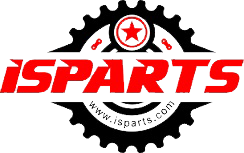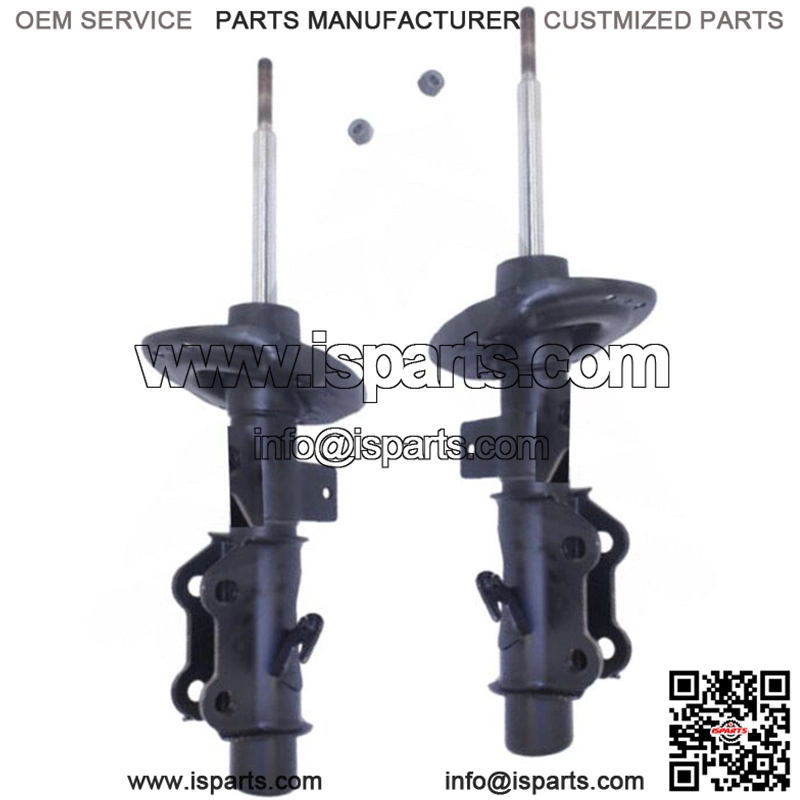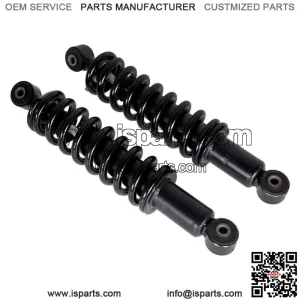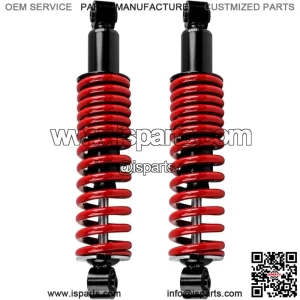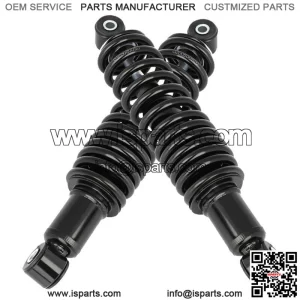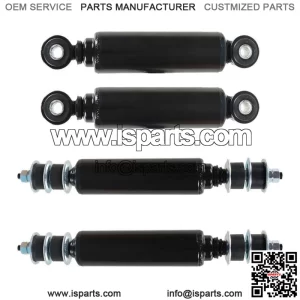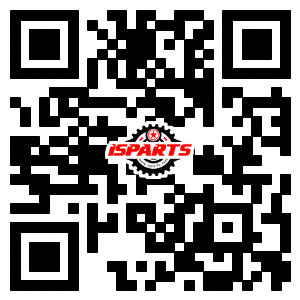2 New Front Suspension Struts Shock Fit Chevrolet Camero 2010-2012 With Warranty
Product categories
- ATV Parts (16847)
- Bicycle Parts (500)
- Camshaft (248)
- Car Parts (10440)
- Clutch (2134)
- CV Axles (8)
- Dirt Bike Parts (33)
- Garden Parts (4)
- Go Kart Parts (737)
- Golf Cart Parts (5914)
- Lawn Mower Parts (10985)
- Minibike Parts (1273)
- Motorboat Parts (519)
- Motorcycle Parts (10207)
- OEM Parts (99)
- OIL COOLER (62)
- Other Parts (1681)
- Scooter Parts (3764)
- Snowmobile and Snow Blower Parts (2863)
- Snowmobile Parts (2)
- Tractor and Trailer and Truck Parts (7451)
- Tractor Parts (40)
- UTV Parts (8205)
Product tags
2 New Front Suspension Struts Shock Fit Chevrolet Camero 2010-2012 With Warranty
2 New Front Suspension Struts Shock Fit Chevrolet Camero 2010-2012 With Warranty
Description
2 Front Struts for
2010-2011 Chevrolet Camero, SS model, 6.2L V8 Only
2012 Chevrolet Camero, All
Brand New Struts/Shocks from a Major Auto Parts Distributor in North America.
O.E. Quality, TS16949 certified
Product Features
Made to OE quality standards and performance
High corrosion resistance and long service life.
Steel rod is micro-polished with double chrome plate. (0.02mm (-+0.005) chrome lay on the rod s surface. All rod surface finished roughness less than 0.08 m.
Newer Valving technology operates in stages based on the velocity of the car
Teflon bonded piston seal to keep friction down and temperature cooler so that valving stays firmer
All-around welding on the spring seat instead of spot welding
Piston seal is OE quality piston by NOK , ensuring product quality and durability
Suspension Strut Assembly is manufactured to exceed original equipment standards. It features a nitrogen twin tube design to provide a quick dampening response, and it has a self-adjusting valve system to ensure product performance sensitive to road conditions, providing a smooth controlled driving experience. The use of NOK multi-lip piston seal is designed to effectively seal to prevent external dust and debris from entering in gas & oil. High strength steel rod is micro-polished with double chrome plate. All rod surface finished roughness is less than 0.08um. This results in better corrosion resistance, longer service life and friction reduction. An all-weather condition shock absorber, contains oil with excellent temperature-viscosity performance (-45 C to 100 C), reduces the wearing of the internal valve components, providing longer durability. The product is ISO/TS 16949:2002 quality certified with limited product warranty.
When to replace worn shocks or struts
There are four main reasons that determine when to replace them:
1) To upgrade performance;
2) To restore the vehicle s designed performance (usually after 50,000 miles);
3) When the vehicle has excessive ride control conditions (i.e. nose dive, body roll, etc.); or
4) When the vehicle has a failed unit (i.e. dripping hydraulic fluid, tire cupping, excessive bounce, etc.).
Testing has shown that original equipment gas-charged shocks and struts degrade measurably by 50,000 miles. For many popular-selling vehicles, replacing these worn shocks and struts can improve the vehicle’s handling characteristics and comfort. Unlike a tire, which rotates a specific number of times per mile, a shock absorber or strut may compress and extend several times per mile on a smooth road, or several hundred times per mile on a very rough road. There are other factors that affect the life of a shock or strut, such as, regional weather conditions, amount and type of road contaminates, driving habits, loading of the vehicle, tire / wheel modifications, and the general mechanical condition of the suspension and tires.
Why replace worn shocks or struts
Performance degrades slowly over time. When shocks and struts aren’t controlling the tire and body movement very well due to wear, all ride control conditions are affected. Stopping ability will be reduced. The vehicle’s stability, handling and control abilities all become reduced so the driver will have to compensate or drive more slowly to maintain control. Tire performance is reduced and because of excessive movement, all other attached steering & suspension components are affected.
